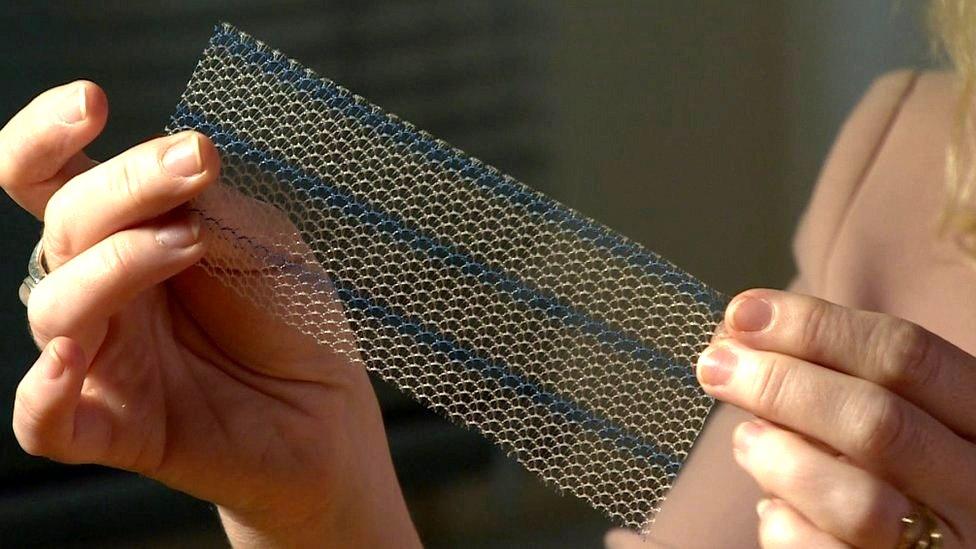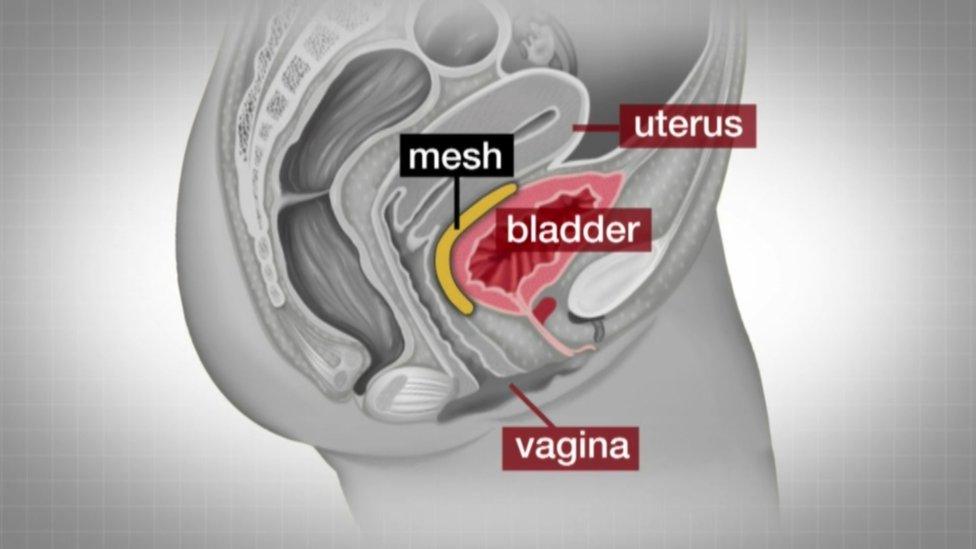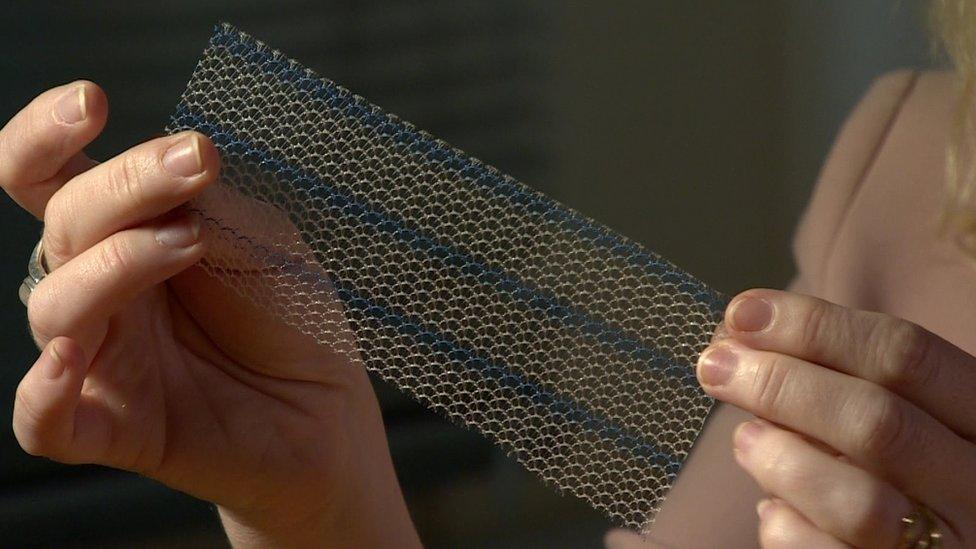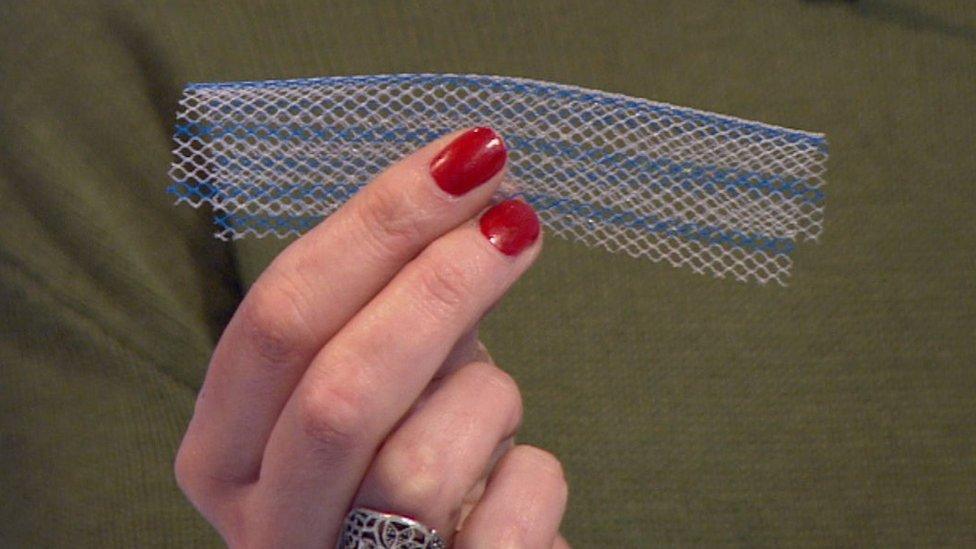No mesh implants carried out in Scotland since halt called
- Published

The mesh implants are used to ease incontinence and to support organs
No vaginal mesh implants have been carried out in Scotland since the chief medical officer announced a halt last October, new figures show.
The government had asked health boards in June 2014 to consider suspending the use of mesh products but they had continued to be offered to women.
It followed controversy about the procedure which was often used to treat incontinence in women after childbirth.
The number of alternative procedures has slowly risen since 2014.
Hundreds of women say mesh implants, which are used to repair damaged or weakened tissue, have ruined their lives.
Some were left in constant pain after the implants hardened and were told they could never have sex again.
The use of mesh in Scotland was suspended in all but "exceptional circumstances" in 2014 after it emerged some women had suffered painful side-effects but the procedure has still been used hundreds of times since.
In one case, the implants were listed as an underlying cause of death of a woman in 2018, sparking calls for an inquiry and an outright ban.

The mesh is made of polypropylene, a type of plastic
Mesh campaigners say thousands of Scottish women are suffering the effects of mesh implants and almost 600 are taking legal action over the procedures.
Last year a Scottish government-commissioned report was critical of the way a previous review of the procedure was carried out, saying it suffered "systemic" failings and potential conflicts of interest.
The new figures, from October 2018 to March 2019, show that over the past 10 years there has been a large decrease in the number of mesh procedures for stress urinary incontinence (SUI), particularly from 2014 onwards.
The number of non-mesh procedures for SUI has increased to a lesser extent and more gradually over the same period.
The figures also showed that:
Over the last 10 years there has been a significant reduction in the total number of mesh and non-mesh surgical procedures carried out for SUI, from 952 in April - Sept 2009 to 236 in Oct 2018 - March 2019
Over the last 10 years there has been a decrease in the number of transvaginal mesh procedures for pelvic organ collapse (POP)
The total number of procedures for POP has decreased over time, from 1,805 in April - September 2009 to 793 in October 2018 - March 2019
No mesh procedures for POP were carried out between October 2018 and March 2019 since the chief medical officer announced a halt in Scotland

What are mesh implants?
The mesh, usually made from synthetic polypropylene, is intended to repair damaged or weakened tissue
Over 20 years, more than 100,000 women across the UK had transvaginal mesh implants, which are used to treat pelvic organ prolapse (POP) and stress urinary incontinence (SUI), often after childbirth
While the vast majority suffer no side-effects, the use of mesh in Scotland was suspended except in "exceptional circumstances" in 2014 after it emerged some women suffered painful side-effects
However, the procedure been used hundreds of times since
Once the mesh is implanted, it is very difficult to remove
- Published6 October 2019

- Published5 March 2019

- Published12 September 2018

- Published6 September 2018

- Published19 December 2016
